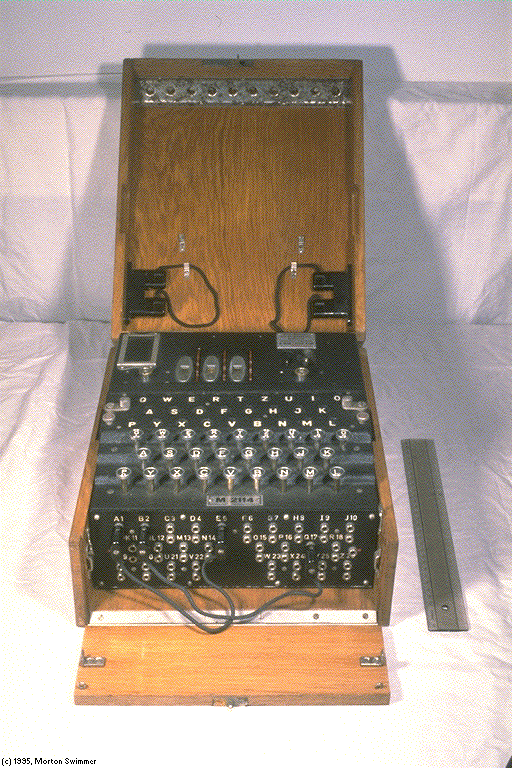|
Capturing the Enigma Machine
Introduction The British decrypters at Bletchley Park, just outside London, had not been able to crack the coded messages produced by the Enigma Machine. At its peak, 10,000 people were involved at the Government Code and Cipher School. Commander Baker-Cresswell achieved the ultimate prize: An Enigma Machine intact, with its Rotors and Settings. HMS Bulldog At that time, the Germans had a coding machine called Enigma, which they believed allowed their naval ships to send and receive messages from the Naval Command, that could not be broken by the British or their Allies. In particular, Admiral Donitz used this machine to orchestrate the movements and attacks of his U-Boat Fleet in the Battle of the Atlantic. Bulldog was attacking a U-Boat contact, suddenly, and unexpectedly U-110 surfaced, the immediate reaction of any Escort Captain is to go full ahead and ram. Baker-Cresswell, in a split second decision, stopped his Destroyer from ramming this U-Boat, and most likely sinking her. On his bridge, he recalled in his mind attending a Staff College lecture about the capture of ciphers in 1914, from a stricken German Naval vessel. He quickly realised his opportunity to emulate this feat, and ordered the launching of a boarding party from his ship under the command of Sub Lieutenant David Balme. On board U-110, scuttling charges that were set, did not operate, and the British Sailors quickly located and collected Enigma, and its essential accessories. The First Sea Lord delighted Bulldog's Commanding Officer was awarded a Distinguished Service Order, and at the investiture, King George V1 told him, your action is " The most significant event of the War at Sea." For many years this story remained a tightly held secret - the Official Historian did not learn about it until 1957, and the total story only saw the light of day, when, in 1997, Peter Padfield published his book " War Beneath the Sea." Joe Baker-Cresswell made it to Captain, Royal Navy, and retired in 1957, and lived to be 96, when he died in May of 1997. His quick thinking changed the course of "The Battle of the Atlantic." in particular, and "The War at Sea." in general.
|

